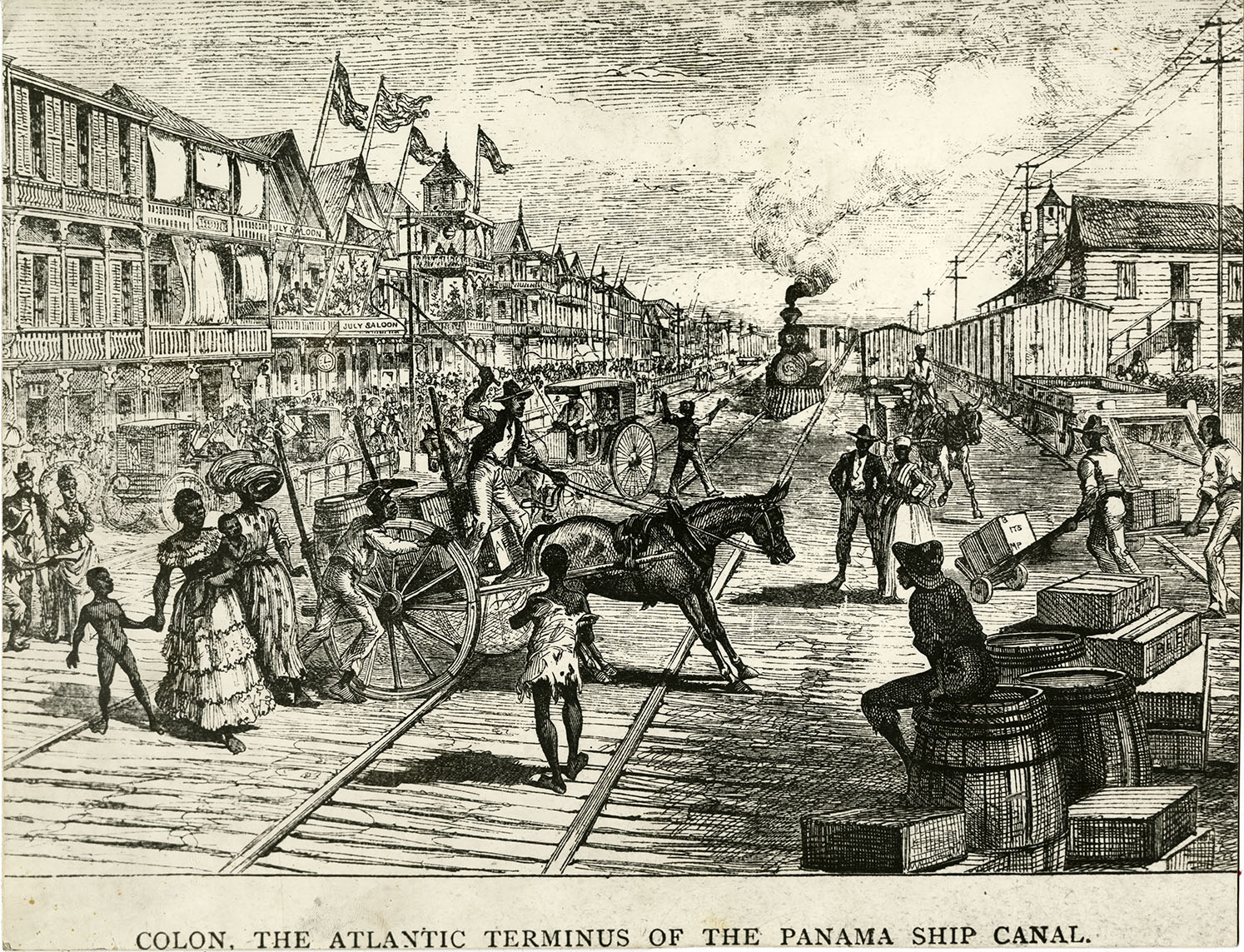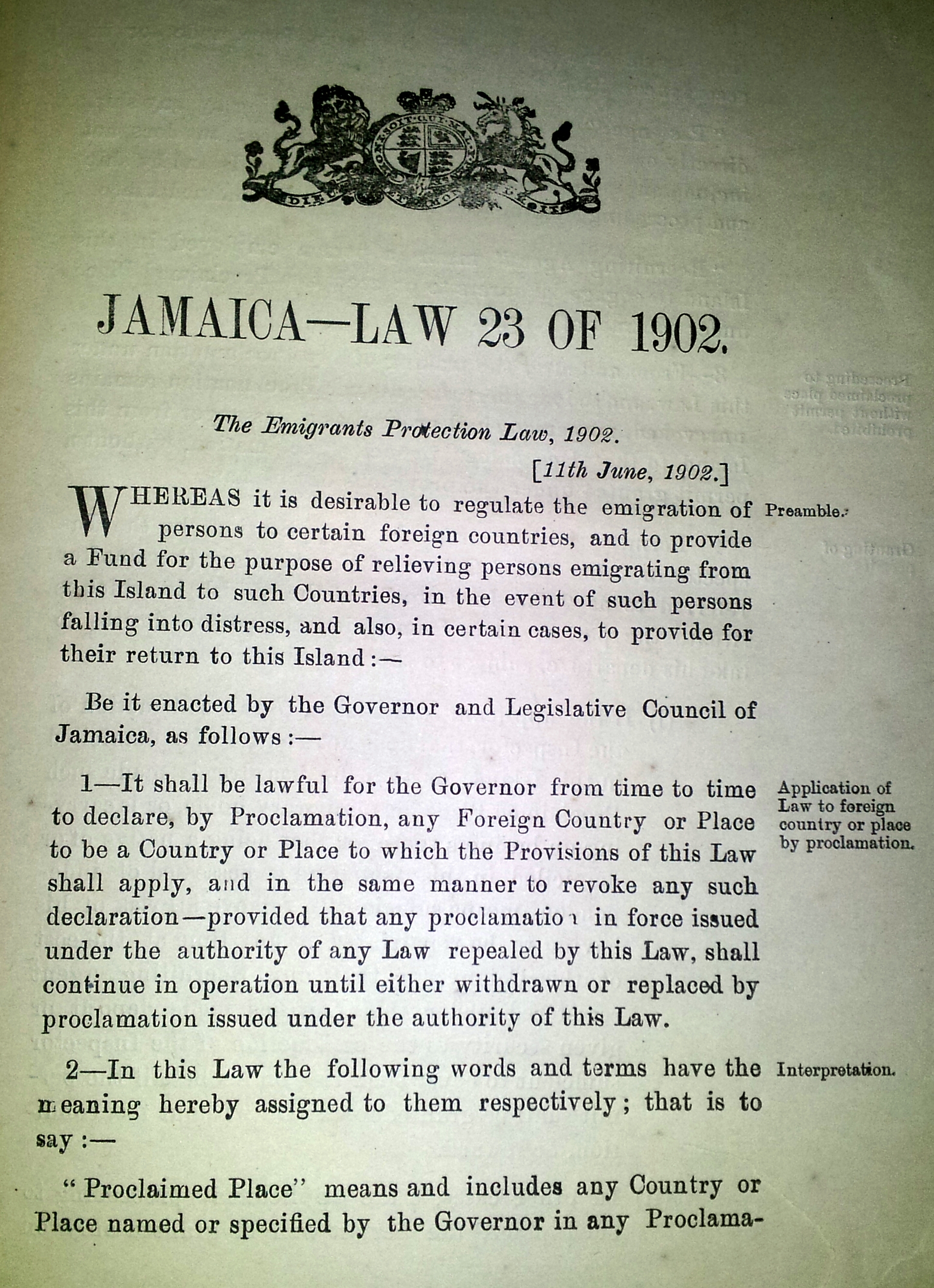Recruitment
Getting labourers for the Canal was mainly carried out by recruiting agents. Many of the recruiting agents were West Indian businessmen who were paid according to the number of workers they supplied, others were representatives sent from the Isthmus by the canal companies.

According to Velma Newton, recruitment was mainly carried out through, advertisement in the newspapers, posters and hired helpers (also referred to as scouts and runners). Sometimes agents made unkept “promises” regarding wages and care and said little about the harsh working conditions.
Recruits were asked to assemble in locations such as the wharf at the bottom of Duke Street, and Sutton Street jail (Newton 75). Here they would be inspected and interviewed, the fittest were selected. After selection, the terms of service were explained but not itemised or documents signed. In this respect the companies had the power in dealing with recruits whose claims of wages and other benefits were not supported by written contracts.
In 1893 the first Emigrants Protection Law was passed, which required agents to state the terms of employment on the form of a contract. Subsequent laws and amendments passed by the Government of Jamaica discouraged many from travelling to the Isthmus, as they would no longer be repatriated should they encounter difficulties while at work on the Canal. The law further stipulated terms by which recruiting agents could operate in Jamaica.

